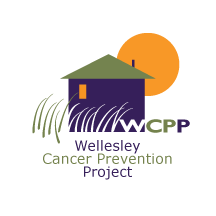October 7, 2020 - The Wellesley Townsman
SARA FROST AZZAM
GUEST
COLUMNIST
From the foods we eat, to how we manage our lawns, what we put on our bodies, how we clean our clothes and our homes, and what we use in our recreational activities, every day we are exposed to hundreds of toxins that may create health-related issues for us and for our families (including our pets).
The following is a list of some simple steps that you can take to minimize your risk of cancer and other illnesses that may be caused by environmental exposures.
- Avoid products containing Phthalates. Phthalates are widely used and can be found in: Personal care use (makeup, shampoo, soaps), Plastics, Paints, and some pesticides. Phthalates have been shown to contain harmful hormone-disrupting chemicals.
- Avoid products containing Bisphenol A, a plastic most commonly found in the linings of canned food, water bottles, and baby bottles. Containers that contain BPA usually have a #7 on the bottom.
- Make sure your dry cleaner uses current alternatives to traditional dry cleaning methods; avoid the use of perchloroethylene (a.k.a. perc or pbc). The International Agency for Research on Cancer (IARC) has designated perc as a “probable human carcinogen.”
- Buy organic food, which has been shown to have little to no pesticide residues as compared to conventionally grown foods. Consumer Reports found that even a single daily serving of some conventional produce can deliver unsafe levels of toxic pesticide residues for young children.
- Reduce your exposure to any chemicals which might be present in any water supply by using an activated charcoal (AC) filter to filter your tap water.
- Avoid cleaning and personal care products where “fragrance” is one of the main ingredients. Fragrance is considered a trade secret and is not subject to disclosure of the chemicals that make up the fragrance. Most of these products contain “fragrance,” whether they purport to be scented or not.
- Avoid dumping chemicals down your drains. Make use of the Hazardous Waste disposal day at the RDF and any prescription disposal program. In particular, if you live near the Morse’s Pond area, remember that any chemicals you dump down your drain or put on your lawn go directly into the storm drains that empty into our water supply.
- Do not wash your car at home, unless you use soap that has been proven organic. Again, the waste water runs right into the storm drains that empty into our water supply.
- Do not use plastic wraps or plastic containers to microwave your food, even those that purport to be microwaveable. Many plastic containers contain chemicals that are hormone-disrupting, and the chemicals can leach into food when they are heated.
- Many pesticides are endocrine disruptors. Maintain your lawn using natural processes. Use (or ask lawn care professionals) for non-toxic pest control products. Remember herbicides are also classified as pesticides. Find an accredited organic lawn professional through the Northeast Organic Farming Association (NOFA) at: http://www.nofamass.org. And avoid using pesticides and/or insecticides inside your home as well.
- Pesticides and herbicides used on gardens and lawns are tracked into the house on shoes and by pets. Have people remove their shoes when they enter your home to avoid tracking in pesticides from the outside.
- Avoid idling the engine of your car when at the post office, the school car line, or running into the corner market. Idling produces more emissions per minute than driving, and engine exhaust contains more than 40 hazardous air pollutants.
- When your children play on artificial sports turf, make sure they empty their athletic shoes into a waste receptacle at the field before entering your car or your house, and make sure they wash their hands after playing on such fields. The tire crumb inlay found at most artificial turf fields includes such hazardous chemicals as mercury, arsenic, trichloroethylene, and lead, to name a few.
- Educate yourself. Join the Wellesley Cancer Prevention Project on October 13, 2020 from 7:00-8:30 at the Wellesley Public Library as we sponsor an informative evening with Joy Onasch, from the Massachusetts Toxics Use Reduction Institute (TURI). Joy will provide an in-depth discussion of the examples listed above and more, plus educate you about alternatives for everyday household products. After all, if you don’t use a toxic chemical in the first place, then you don’t have to contain it, clean it up, or be exposed to it.
This column was submitted on behalf of the Wellesley Cancer Prevention Project by Sara Frost Azzam, President.
